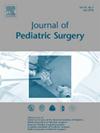Adapting Perioperative Care for Neurodivergent Children - A Scoping Review
IF 2.4
2区 医学
Q1 PEDIATRICS
引用次数: 0
Abstract
Purpose
Routine procedures often pose heightened challenges for neurodivergent children, resulting in increased need for perioperative care compared to the general population. Healthcare professionals’ reduced familiarity with infrequent neurodivergent diagnoses further underscores the necessity of evidence-based guidelines. As no guidelines currently exist, our study aims to review interventions, delineate key themes, and develop a checklist to aid healthcare professionals in navigating the perioperative process for neurodivergent patients.
Methods
Following PRISMA-ScR guidelines, we searched 8 databases from inception until May 2023 for studies assessing perioperative interventions for neurodivergent children. Articles were included if they: (1) focused on the pediatric neurodivergent population, (2) evaluated an intervention that adapted perioperative care, and (3) represented an original research study. To increase the study's inclusiveness, patient partners' perspectives were incorporated into data analysis and interpretation.
Results
Out of 7992 articles screened at title and abstract level, 144 were reviewed in full-text format and 29 included in the analysis. Three key themes were identified: use of individualized care plans (27.6 % of included articles), modulation of pre-procedural sedation (17.2 %), and use of innovative mobility devices to improve safety of patient transfers (10.3 %). Care plans were created in collaboration with caregivers, assessing patients’ preferences, triggers, and communication style. A multidisciplinary therapeutic approach was deemed crucial, including child life specialists — mentioned in 62.5 % of care plans studies.
Conclusion
Improving perioperative care for neurodivergent children centers on the evaluation of their individual needs, followed by designing personalized care plans which include tailored pharmacological and non-pharmacological interventions.
Level of Evidence
III (scoping review, with lowest level of evidence included being case–control study).
适应围手术期护理的神经分化儿童-范围审查。
目的:与一般人群相比,常规手术通常对神经分化儿童构成更大的挑战,导致围手术期护理的需求增加。医疗保健专业人员对罕见的神经发散性诊断的熟悉程度降低,进一步强调了循证指南的必要性。由于目前尚无指南,我们的研究旨在回顾干预措施,描述关键主题,并制定一份清单,以帮助医疗保健专业人员在神经分化患者的围手术期过程中导航。方法:根据PRISMA-ScR指南,我们检索了8个数据库,从建立到2023年5月,评估神经分化儿童围手术期干预措施的研究。如果文章:(1)关注儿童神经分化人群,(2)评估适应围手术期护理的干预措施,(3)代表原创研究,则纳入文章。为了增加研究的包容性,患者伴侣的观点被纳入数据分析和解释。结果:在标题和摘要水平筛选的7992篇文章中,144篇以全文格式进行了审查,29篇纳入了分析。确定了三个关键主题:个性化护理计划的使用(占纳入文章的27.6%),术前镇静的调节(17.2%),以及使用创新的活动装置来提高患者转移的安全性(10.3%)。护理计划是与护理人员合作制定的,评估患者的偏好、触发因素和沟通方式。多学科治疗方法被认为是至关重要的,包括儿童生活专家——62.5%的护理计划研究中提到了这一点。结论:提高神经分化患儿围手术期护理的重点是评估患者的个性化需求,制定个性化护理方案,包括针对性的药物和非药物干预措施。证据水平:III(范围审查,最低证据水平包括病例对照研究)。
本文章由计算机程序翻译,如有差异,请以英文原文为准。
求助全文
约1分钟内获得全文
求助全文
来源期刊
CiteScore
1.10
自引率
12.50%
发文量
569
审稿时长
38 days
期刊介绍:
The journal presents original contributions as well as a complete international abstracts section and other special departments to provide the most current source of information and references in pediatric surgery. The journal is based on the need to improve the surgical care of infants and children, not only through advances in physiology, pathology and surgical techniques, but also by attention to the unique emotional and physical needs of the young patient.

 求助内容:
求助内容: 应助结果提醒方式:
应助结果提醒方式:


